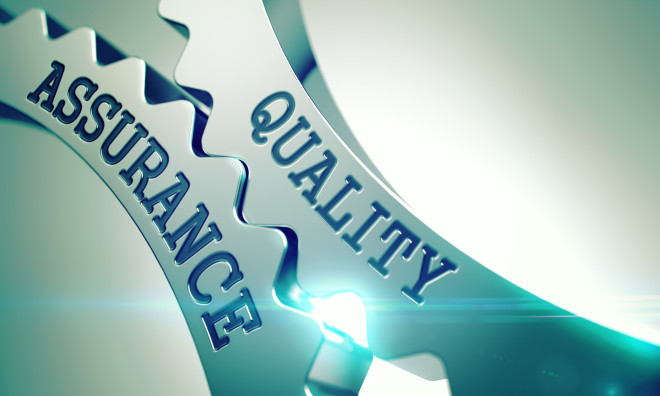
Introduction
In the fast-paced world of aerospace, efficient management of resources and streamlined processes are crucial for success. That’s where Enterprise Resource Planning (ERP) comes into play. This article will delve into the concept of ERP and its paramount importance in the aerospace industry. Let’s explore how ERP systems facilitate better control, seamless communication, and strategic decision-making, ensuring smoother operations for companies.
What is ERP?
Enterprise Resource Planning (ERP) is a comprehensive software solution that integrates and manages core business processes across an organization. It allows businesses to automate and streamline operations, facilitating efficient data flow and communication between various departments. ERP systems are crucial for the aerospace industry due to their ability to handle complex and interconnected tasks effectively.
The Role of ERP in Aerospace
In the ERP software for aviation industry, precision and efficiency are of paramount importance. ERP systems play a pivotal role in optimizing operations, supply chain management, and regulatory compliance. The following are some key areas where ERP makes a significant impact:
Supply Chain Management (SCM) in Aerospace
A well-coordinated supply chain is critical for aerospace companies to meet project deadlines and deliver high-quality products. ERP systems enhance visibility across the supply chain, from raw materials sourcing to finished product delivery, ensuring timely procurement, inventory management, and reduced lead times.
Quality Assurance and Compliance

The aviation industry operates under strict regulations and quality standards. ERP solutions enable companies to maintain comprehensive documentation, track quality metrics, and adhere to industry-specific compliance standards, ensuring the delivery of safe and reliable products.
Resource Planning and Allocation
Aerospace projects involve numerous resources, such as manpower, equipment, and materials. ERP systems facilitate efficient resource planning, allocation, and utilization, helping companies optimize costs and improve overall project efficiency.
Real-time Data Insights and Analytics
In the fast-changing aerospace landscape, data-driven decision-making is crucial. ERP software provides real-time insights through analytics and reporting, empowering stakeholders with accurate information to make informed choices and respond quickly to market dynamics.
Collaboration and Communication
With multiple teams and departments working on complex aerospace projects, effective collaboration is vital. ERP systems enable seamless communication, data sharing, and task tracking, fostering collaboration and promoting better project outcomes.
Advantages of ERP Systems in Aerospace
ERP systems offer numerous advantages that have a significant impact on aerospace companies. Let’s explore some of these key advantages:
Streamlined Operations
ERP software integrates various processes, eliminating redundant tasks and streamlining operations. This results in improved efficiency, reduced operational costs, and increased productivity.
Enhanced Data Security
Aerospace companies deal with sensitive data, including intellectual property and customer information. ERP systems incorporate robust security measures, safeguarding critical data from unauthorized access and cyber threats.
Improved Decision-making
ERP solutions provide real-time data and insights, empowering management with accurate information for better decision-making. This helps companies respond swiftly to market changes and optimize business strategies.
Scalability and Flexibility
As the aerospace industry evolves, companies need software that can adapt to changing needs. ERP systems offer scalability and flexibility, allowing businesses to add new functionalities or expand operations seamlessly.
Standardized Processes
ERP implementation encourages the adoption of standardized processes across the organization. This consistency improves coordination, reduces errors, and ensures compliance with industry regulations.
Cost Optimization
By optimizing resource allocation and reducing operational inefficiencies, ERP systems contribute to cost savings for aerospace companies.
Challenges in Implementing ERP for Aerospace
While ERP systems offer numerous benefits, their implementation in the aviation industry can present some challenges. Let’s explore these challenges and ways to overcome them:
Integration Complexity
Aerospace companies often have a wide range of legacy systems, making the integration of ERP challenging. A phased approach to integration and involving all stakeholders in the process can mitigate this challenge.
Employee Training and Acceptance
Adopting new ERP software requires adequate training for employees. Resistance to change is common, and comprehensive training programs and continuous support can help employees embrace the new system effectively.
Data Migration and Cleansing
Migrating and cleansing data from existing systems to the new ERP can be a time-consuming and error-prone process. Companies must ensure data accuracy and integrity during the transition.
Cost and Return on Investment (ROI)
ERP implementation involves significant upfront costs. Aerospace companies need to carefully assess the ROI and long-term benefits to justify the investment.
Cybersecurity Concerns
ERP systems house vast amounts of sensitive data, making them attractive targets for cyberattacks. Robust cybersecurity measures and regular audits are essential to protect against potential threats.
Customization Challenges
Aerospace companies have unique processes that may require ERP customization. Balancing customization needs with standard ERP functionalities is crucial to avoid excessive complexity.
Conclusion
In conclusion, ERP systems play a vital role in the aerospace industry by streamlining operations, enhancing collaboration, improving decision-making, and optimizing resource allocation. While implementing ERP can pose challenges, the benefits it offers far outweigh the obstacles. Aerospace companies that embrace ERP solutions are better positioned to navigate the complexities of the industry and achieve long-term success.

FAQs
What exactly is ERP, and why is it important for the aerospace industry?
ERP (Enterprise Resource Planning) is a comprehensive software solution that integrates and manages core business processes across an organization. In the aviation industry, it plays a crucial role in optimizing supply chain management, ensuring compliance, streamlining operations, and providing real-time data insights for informed decision-making.
How does ERP enhance collaboration in aerospace companies?
ERP systems facilitate seamless communication, data sharing, and task tracking, fostering collaboration among multiple teams and departments. This promotes better project outcomes and accelerates product development cycles.
Can ERP systems improve resource allocation in the aerospace industry?
Absolutely! ERP solutions enable efficient resource planning, allocation, and utilization, which optimizes costs and improves overall project efficiency for aerospace companies.
What are the key advantages of ERP systems in the aerospace sector?
ERP systems offer streamlined operations, enhanced data security, improved decision-making, scalability, flexibility, standardized processes, and cost optimization benefits for aerospace companies.
How can aerospace companies overcome challenges in implementing ERP?
Aerospace companies can overcome ERP implementation challenges by adopting a phased integration approach, providing comprehensive employee training and support, ensuring data accuracy during migration, assessing ROI carefully, strengthening cybersecurity measures, and balancing customization need with standard ERP functionalities.
Are ERP systems suitable for small and medium-sized aerospace companies?
Yes, ERP systems are adaptable to the size and needs of aerospace companies. They offer scalability and flexibility, making them suitable for both small and medium-sized businesses in the industry.







